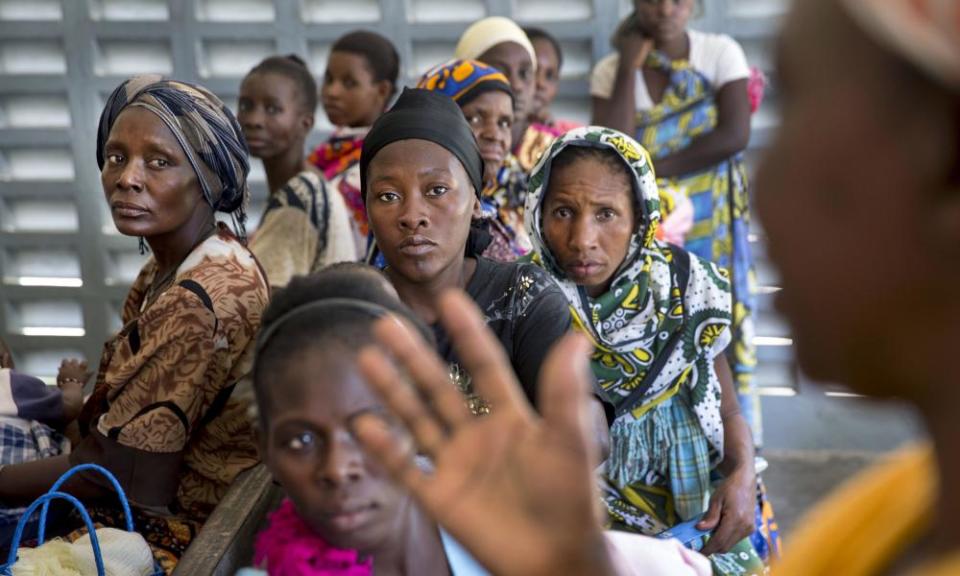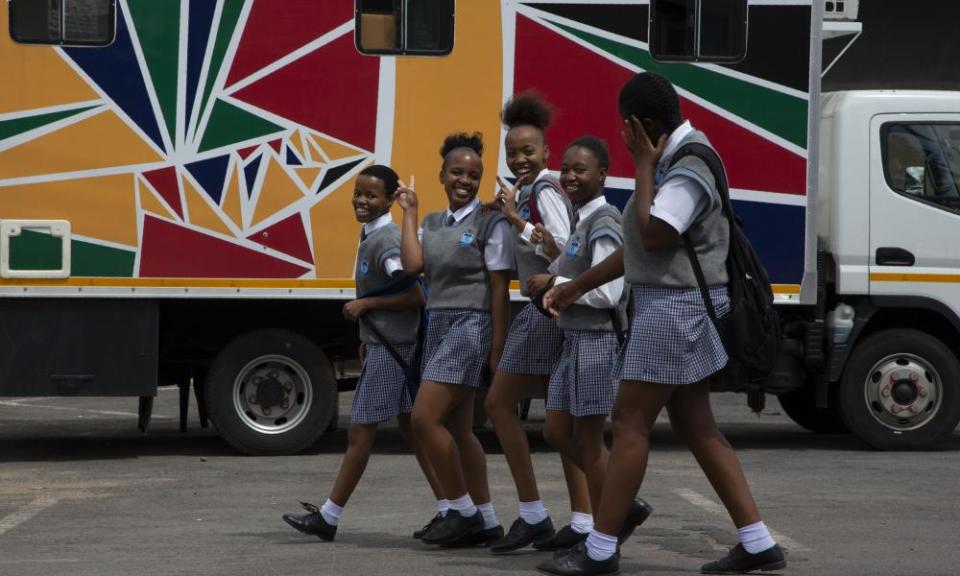‘Out of Trump playbook’: UK accused of ‘abandoning’ women with cuts to aid

The director of a leading sexual and reproductive health charity has accused the government of “abandoning” women and girls it promised to help, as aid cuts derail a leading Tory programme to reduce maternal deaths and prevent unsafe abortions in poor countries.
The threat to the women’s integrated sexual health (Wish) programme could mean 7.5m additional unintended pregnancies, 2.7m unsafe abortions and 22,000 maternal deaths over the next year, said Dr Alvaro Bermejo, director general of International Planned Parenthood Federation (IPPF).
“The impact will be brutal,” Bermejo said. “We’re already having to close in half the countries where we are operating and keep the remaining ones operating at 30% of what they were. We will have to close our Mozambique project with three months’ notice and our Zambia project. We’re losing staff now.”
Related: British aid cuts to leave tens of thousands of Syrians 'paperless'
The Foreign, Commonwealth and Development Office (FCDO) said it had not yet made any decisions about where the cuts would be made. However, Bermejo and Simon Cooke, chief executive officer of MSI Reproductive Choices, who implement the FCDO’s reproductive health programme, said they had been told by government officials to “stretch” existing funding beyond June 2021, which meant closing programmes now.
“Women going to get their IUD [intrauterine contraceptive device] or implant inserted will find the clinic is not there,” said Bermejo. “You don’t rebuild that trust, ever.”
“The expected cuts could be the same order of magnitude as when President Trump introduced the ‘global gag rule’,” he said. “We lost $100m. This time we stand to lose £72m.”
MPs said cuts to reproductive health programmes are “out of Trump’s playbook” and would lead to deaths of women in the world’s poorest countries. The former US president’s 2017 “global gag” blocked US aid funding to groups providing information on abortion.
“What is unbelievable is a flagship programme designed by a Conservative government for sexual and reproductive health is going to be destroyed,” said Bermejo.
IPPF’s Mozambique Wish programme reached half a million women in the last three months, a quarter of them under 25, and increased the take-up of long-term contraceptives, as well as ensuring rural health facilities were stocked with drugs.
Arune Estavela, the project’s director, said the country’s 102 government-run health facilities providing sexual and reproductive services will remain open, but the Wish programme’s closure will mean the quality of the service is reduced. Estavela said women will die as a result.

“We will have more HIV, sexually transmitted diseases and unintended pregnancies,” said Estavela. “Many teenagers will seek unsafe abortions, and we can expect more complications and maternal deaths. The health facilities are a focal point for cases of gender-based violence, with HIV and pregnancy prophylaxis and that will no longer happen.”
The UK is one of the world’s leading donors to family planning. A review by the then Department for International Development, covering April to December 2019, ranked Wish as “excellent” value for money.
Bermejo said: “We signed a three-year contract, with an agreement that if three years were successful we could have another two. We were asked in June 2020 to continue this project for 18 months.”
Six weeks ago, he was told by FCDO officials that: “Given the cuts, we are not going to be able to fund those two years as planned. They said: ‘Try to stretch the money that has been approved from now to June 2021.’”
He will have to close Wish projects in eight countries, including Afghanistan and Bangladesh. IPPF is trying to keep projects open in Ethiopia and Pakistan, while the remaining programmes in six countries, will operate at 30% of the previous capacity.
Last November, the government said it would reduce its commitment on foreign aid from a legally protected level of 0.7% of gross national income to 0.5%, creating a £4bn shortfall and drawing predictions that women and girls would suffer most. In the four months since, the FCDO has provided no details about where the cuts will fall, leading to concerns from the aid sector over transparency.
Cooke said: “We were both expecting a cost extension, which would extend FCDO funding to 2022 and beyond. We had that agreed in principle and planned for it. But we have been told we cannot expect funding before 2022.”
“The reality is a lot of what we are doing has to be shut down,” he said. “In some cases, we will have to stop immediately. In many cases, there are no alternatives, nowhere else for women to go.”
Worst affected would be African countries in the Sahel, he said, with adolescent girls affected most. He described the drop in aid as “an act of self-harm”.
Stella Creasy, the senior Labour backbencher, said: “A government that on the one hand promotes the idea of investing in the education of women and girls around the world and on the other hand takes away the funding for the healthcare that can keep them in school is following the Trump playbook.
“We know that not funding healthcare doesn’t stop abortions, it just leads to unsafe abortions. It is a cut that will lead to a loss of life.”
Gareth Thomas, Labour MP and former international development minister, said it was a “hammer blow to Britain’s reputation and a disaster for women in the poorest countries”.
Liz Sugg, a former Conservative FCDO minister who resigned in protest at the aid cuts, said that while she did not know where they would fall, she was “particularly concerned around family planning and contraception”, adding: “For us to stop funding this work right now seems to me to be a bad decision.”
A UK government spokesperson described the aid cuts as “tough but necessary”. They did not comment on the cuts facing reproductive health services but added: “We are still working through what this means for individual programmes and decisions have not yet been made.”

 Yahoo Sports
Yahoo Sports 